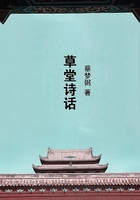On hearing this the first thought of the army was to fall upon the chief authors of the oligarchy and upon all the rest concerned.
Eventually, however, they desisted from this idea upon the men of moderate views opposing it and warning them against ruining their cause, with the enemy close at hand and ready for battle. After this, Thrasybulus, son of Lycus, and Thrasyllus, the chief leaders in the revolution, now wishing in the most public manner to change the government at Samos to a democracy, bound all the soldiers by the most tremendous oaths, and those of the oligarchical party more than any, to accept a democratic government, to be united, to prosecute actively the war with the Peloponnesians, and to be enemies of the Four Hundred, and to hold no communication with them. The same oath was also taken by all the Samians of full age; and the soldiers associated the Samians in all their affairs and in the fruits of their dangers, having the conviction that there was no way of escape for themselves or for them, but that the success of the Four Hundred or of the enemy at Miletus must be their ruin.
The struggle now was between the army trying to force a democracy upon the city, and the Four Hundred an oligarchy upon the camp.
Meanwhile the soldiers forthwith held an assembly, in which they deposed the former generals and any of the captains whom they suspected, and chose new captains and generals to replace them, besides Thrasybulus and Thrasyllus, whom they had already. They also stood up and encouraged one another, and among other things urged that they ought not to lose heart because the city had revolted from them, as the party seceding was smaller and in every way poorer in resources than themselves. They had the whole fleet with which to compel the other cities in their empire to give them money just as if they had their base in the capital, having a city in Samos which, so far from wanting strength, had when at war been within an ace of depriving the Athenians of the command of the sea, while as far as the enemy was concerned they had the same base of operations as before.
Indeed, with the fleet in their hands, they were better able to provide themselves with supplies than the government at home. It was their advanced position at Samos which had throughout enabled the home authorities to command the entrance into Piraeus; and if they refused to give them back the constitution, they would now find that the army was more in a position to exclude them from the sea than they were to exclude the army. Besides, the city was of little or no use towards enabling them to overcome the enemy; and they had lost nothing in losing those who had no longer either money to send them (the soldiers having to find this for themselves), or good counsel, which entitles cities to direct armies. On the contrary, even in this the home government had done wrong in abolishing the institutions of their ancestors, while the army maintained the said institutions, and would try to force the home government to do so likewise. So that even in point of good counsel the camp had as good counsellors as the city.
Moreover, they had but to grant him security for his person and his recall, and Alcibiades would be only too glad to procure them the alliance of the King. And above all if they failed altogether, with the navy which they possessed, they had numbers of places to retire to in which they would find cities and lands.
Debating together and comforting themselves after this manner, they pushed on their war measures as actively as ever; and the ten envoys sent to Samos by the Four Hundred, learning how matters stood while they were still at Delos, stayed quiet there.
About this time a cry arose among the soldiers in the Peloponnesian fleet at Miletus that Astyochus and Tissaphernes were ruining their cause. Astyochus had not been willing to fight at sea- either before, while they were still in full vigour and the fleet of the Athenians small, or now, when the enemy was, as they were informed, in a state of sedition and his ships not yet united- but kept them waiting for the Phoenician fleet from Tissaphernes, which had only a nominal existence, at the risk of wasting away in inactivity. While Tissaphernes not only did not bring up the fleet in question, but was ruining their navy by payments made irregularly, and even then not made in full. They must therefore, they insisted, delay no longer, but fight a decisive naval engagement. The Syracusans were the most urgent of any.
The confederates and Astyochus, aware of these murmurs, had already decided in council to fight a decisive battle; and when the news reached them of the disturbance at Samos, they put to sea with all their ships, one hundred and ten in number, and, ordering the Milesians to move by land upon Mycale, set sail thither. The Athenians with the eighty-two ships from Samos were at the moment lying at Glauce in Mycale, a point where Samos approaches near to the continent; and, seeing the Peloponnesian fleet sailing against them, retired into Samos, not thinking themselves numerically strong enough to stake their all upon a battle. Besides, they had notice from Miletus of the wish of the enemy to engage, and were expecting to be joined from the Hellespont by Strombichides, to whom a messenger had been already dispatched, with the ships that had gone from Chios to Abydos. The Athenians accordingly withdrew to Samos, and the Peloponnesians put in at Mycale, and encamped with the land forces of the Milesians and the people of the neighbourhood. The next day they were about to sail against Samos, when tidings reached them of the arrival of Strombichides with the squadron from the Hellespont, upon which they immediately sailed back to Miletus. The Athenians, thus reinforced, now in their turn sailed against Miletus with a hundred and eight ships, wishing to fight a decisive battle, but, as no one put out to meet them, sailed back to Samos.















